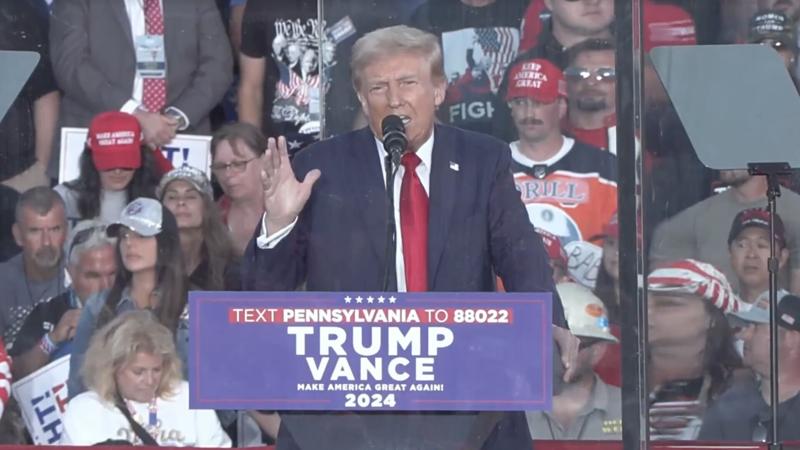Former President Donald Trump on Thursday asked a federal judge not to release additional evidence in the case before the Nov. 5 election.
Trump’s team had also argued against the release of special counsel Jack Smith’s filing on presidential immunity. Judge Tanya Chutkan ordered the release Smith’s 165-page immunity filing two weeks ago.
On Thursday, Trump asked that the redacted appendix, which was an attachment to the immunity motion unsealed two weeks ago. Smith’s motion included new details about Trump and his allies’ actions leading up to the Jan. 6 riot on the Capitol.
“Thus, without any semblance of due process – including President Trump’s right to cross-examine witnesses and call his own witnesses in a court proceeding – the public has been poisoned by a one-sided prosecutorial narrative that is being used for political purposes by the incumbent administration,” Trump’s attorneys wrote.
Trump’s team noted that quotes from Smith’s immunity filing soon appeared in campaign advertising for Vice President Kamala Harris.
“The incumbent Vice President – whose administration the Special Counsel serves – also began featuring the Special Counsel’s brief in political advertisements for the 2024 Presidential Election,” defense attorneys wrote.
Trump’s defense team said the timing of the release could affect the presidential election and make it more difficult for Trump to get a fair trial. Trump’s team asked that any additional materials be released Nov. 14, after the election, and at the same time when Trump’s reply brief is due.
“Here, President Trump requests only that the Court briefly continue its existing stay of the Order, such that the redacted versions of the SC Appendix and President Trump’s forthcoming appendix may be released concurrently.
“Although this stay will not eliminate the harms President Trump identified in his prior opposition filings, certain harms will be mitigated,” the filing said. “For example, if the Court immediately releases the Special Counsel’s cherry-picked documents, potential jurors will be left with a skewed, one-sided, and inaccurate picture of this case. Those same potential jurors may not see President Trump’s later responsive filing, and even if some do, ‘first impressions are prone to remain.’ “
Concurrent release would help, the defense argued.
“Conversely, if the appendices are released simultaneously, at least some press outlets will attempt to report both sides of this case, reducing (although, again, not eliminating) the potential for irreversible prejudice,” the filing said. “Similarly, the risk to witnesses will be somewhat reduced, as the public will have a more balanced picture of their testimony and how it connects to this case.”
Smith did not respond to Trump’s request for a delay, according to the filing.
“Whether or not the Special Counsel is politically motivated, the asymmetric release of charged allegations and related documents during early voting creates a concerning appearance of election interference,” the defense argued.
Trump pleaded not guilty last year to federal charges that he engaged in a “criminal scheme” to overturn the results of the 2020 election. In September, Trump again pleaded not guilty to a superseding indictment that was changed to address the U.S. Supreme Court’s July ruling on presidential immunity.
Smith and Trump’s defense team remain at odds over how the can case should proceed after the Supreme Court ruling found that presidents are protected from prosecution for official acts while in office.
The high court ruled that presidents and former presidents of the United States have “absolute immunity” when acting on core constitutional duties and “presumptive immunity” on other matters. The court said unofficial acts are not protected.






